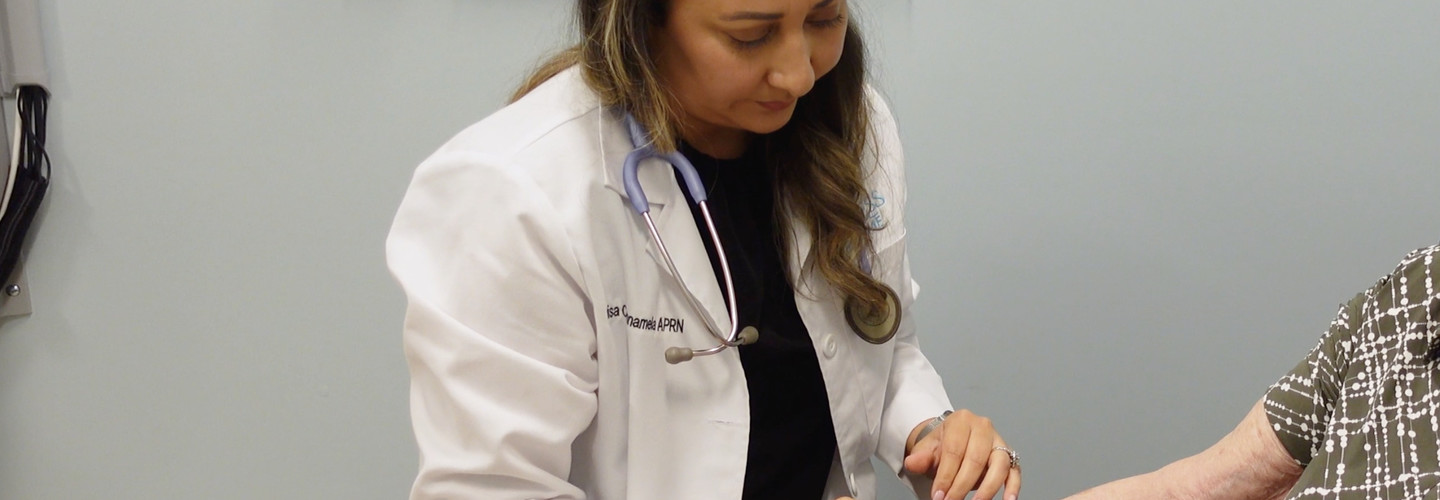
Before Fort Myers, Fla.-based Cypress Living stood up its own primary care practice on campus, the senior care organization relied on an outside provider on a contract basis.
“Services were essentially sporadic,” says Louisa Cannamela, vice president of clinical services at Cypress Living. “Our residents were vocal about wanting consistency, so we listened to them.”
Now, using recently renovated medical care office space, Cypress Living can regularly connect residents with clinical staff.
“We’re able to provide a multitude of services within our clinic space,” says Christine Burns, vice president of home and community-based services. “We can perform lab services, EKGs, basic wound care, and we also can provide chronic disease management for our residents.”
Telepresence carts and Microsoft Teams are among the technologies that support Cypress Living’s onsite primary care practice.
“Teams is a great tool to provide communication between our front-line staff and the primary care team in many of our healthcare spaces, which has yielded some tremendous results for us,” says Vice President of Innovation Joe Velderman.
The organizations has also digitalized a previously cumbersome paper-based process with an electronic, real-time incident tracker.
“We can now track and trend incidents that happen across our campus. We have better visibility into where incidents are occurring and can coordinate additional supports if needed,” Burns says.
What advice does the Cypress Living team have for other senior care organizations considering their own onsite primary care practice? Having open channels of communication is key.
“Make sure that there is a great tool in place to close any communication gaps,” Cannamela says. “Our staff absolutely loves using the communication platform because they’re able to get residents care almost immediately.”
Burns adds that it’s important to include the clinical department as necessary stakeholders in organizational plans. “Medical care is a missing piece of the puzzle. Your medical care team needs to have a seat at the table with other departments and members across the organization.”
Velderman, who has spent two decades in aging services, sees the change happening in the sector and recommends that other organizations transform to adapt. “The industry is still moving from a fee-for-service model to value-based care, from a reactive model to a much more proactive care model. Our strategy to implement primary care on our campus really sets us up for a lot of success going forward,” he says.


